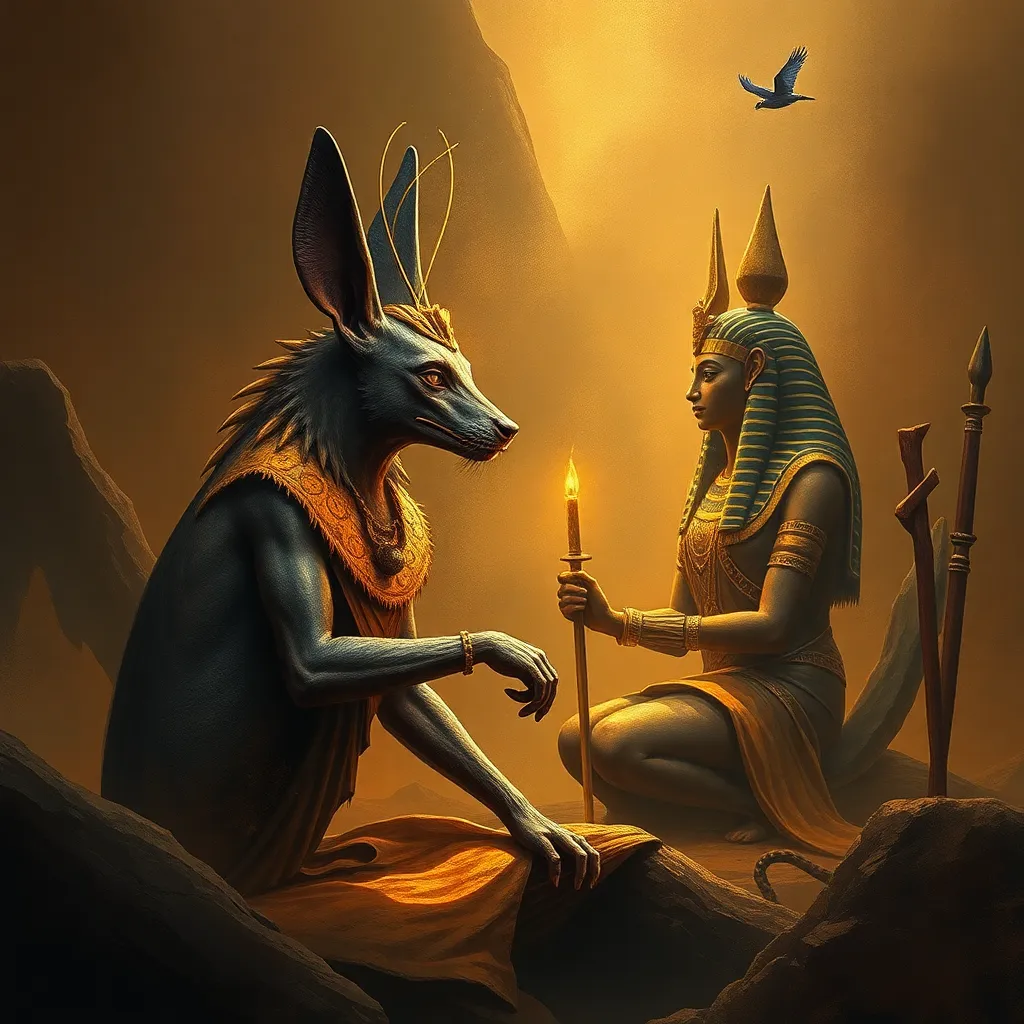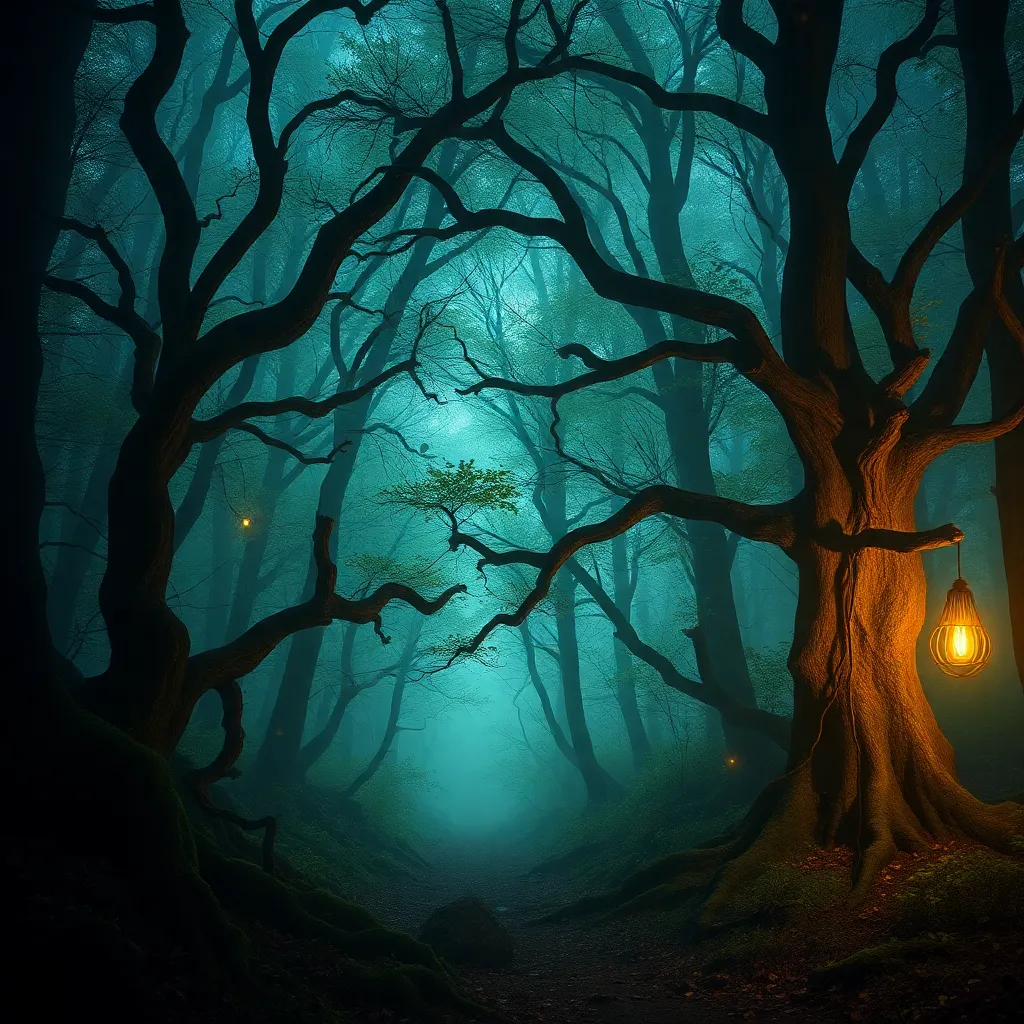The Orcish Relationship with the Divine: Exploring Orcish Beliefs About God(s) or Supernatural Entities
I. Introduction to Orcish Spirituality
Orcish culture is rich and multifaceted, characterized by a deep connection to their spirituality. Unlike many other races, Orcs have a unique belief system that intertwines their identity with their understanding of the divine. Spirituality plays a vital role in shaping Orcish society, influencing their values, traditions, and communal bonds. For Orcs, the divine is not an abstract concept; it is a tangible presence that guides their lives, instilling a sense of purpose and belonging.
II. Historical Context of Orcish Beliefs
The Orcish belief system has evolved over centuries, influenced by various historical events and cultural exchanges. In ancient times, Orcs worshipped a pantheon of deities that represented aspects of nature, war, and life. As they encountered other cultures, their beliefs began to incorporate elements from these interactions, leading to a more complex spirituality.
Significant events, such as wars and migrations, have also shaped Orcish spiritual practices. The loss of ancestral lands and the struggles against oppression fostered a deeper reverence for their gods and ancestral spirits, who were seen as protectors and guides during tumultuous times.
III. Key Deities in Orcish Mythology
Orcish mythology is populated with powerful gods and goddesses that embody the values and struggles of their people. Some of the major deities include:
- Gruumsh: The chief deity of the Orcs, representing strength, conquest, and survival. Gruumsh is often depicted as a one-eyed god, symbolizing vigilance and ferocity in battle.
- Ilneval: The god of war and strategy, Ilneval is revered by Orcish warriors seeking prowess in battle. He embodies the principles of cunning and tactical superiority.
- Shargaas: The deity associated with stealth and darkness, Shargaas is worshipped by those who prefer subterfuge over direct confrontation. He is often called upon during covert operations.
- Bahgtru: The god of strength and physical prowess, Bahgtru is a patron of athletes and warriors, symbolizing the importance of might in Orcish culture.
Each of these deities plays a distinct role in the lives of Orcs, representing the attributes they value most and providing a framework for their spiritual practices.
IV. The Role of Ancestors in Orcish Religion
Ancestor worship is a cornerstone of Orcish spirituality, reflecting their deep respect for lineage and heritage. Orcs believe that their ancestors continue to influence the living world, providing guidance and protection. This connection to the past is maintained through various practices and rituals.
Common rituals honoring ancestral spirits include:
- Feast of the Ancestors: An annual gathering where families prepare meals to honor their forebears, sharing stories and memories.
- Ritual Offerings: Orcs may create altars or shrines where they leave offerings of food, weapons, or tokens that represent their respect for their ancestors.
- Spirit Calling: During certain festivals, shamans or spiritual leaders may perform rituals to summon the spirits of ancestors, seeking their wisdom and blessings.
These practices reinforce the Orcish belief that the past is always present, and honoring ancestors strengthens communal ties and individual identities.
V. The Concept of the Divine in Orcish Society
Orcish perception of divinity is distinct from many other cultures. They view their gods not only as powerful entities but also as relatable figures who understand the struggles of everyday life. This close relationship cultivates a sense of accountability among Orcs, as they believe their actions can directly influence their gods’ favor.
Orcs also see divinity as a collective force rather than individual entities. They often conceptualize their gods as part of a larger whole, interconnected with the natural world and the spirit of their ancestors. This view fosters a communal approach to spirituality, where the success of one is tied to the success of all.
VI. Rituals and Practices: Communicating with the Divine
Rituals play an essential role in how Orcs communicate with the divine. These practices are designed to seek guidance, blessings, and support from their deities. Common rituals include:
- Blood Oaths: Orcs may swear oaths in the name of their gods, often binding themselves to a vow of loyalty or a mission.
- War Dances: Before battles, Orcs perform ceremonial dances to honor their gods, invoking their strength and protection.
- Divination: Shamans often engage in practices like reading animal entrails or interpreting dreams to gain insights from the divine.
These rituals are not merely formalities; they are profound expressions of faith and a means of actively engaging with the spiritual realm.
VII. Orcish Cosmology and the Afterlife
Orcish cosmology is rich with narratives about the creation of the world and the nature of the afterlife. Orcs believe that the world was forged through the struggles of their gods, reflecting the importance of conflict and resolution in their existence. The creation myth often emphasizes the balance between chaos and order, mirroring Orcish values of strength and resilience.
In terms of the afterlife, Orcs hold that the spirits of the deceased join their ancestors, continuing to influence the living. The journey to the afterlife is seen as a rite of passage, where the souls must prove their worthiness through tests that reflect their life’s actions.
VIII. Contemporary Orcish Spirituality
Today, Orcish spirituality faces new challenges and influences. Urbanization, inter-racial interactions, and the rise of global spirituality have all impacted traditional beliefs. Many Orcs are finding ways to incorporate contemporary elements into their faith, leading to a fusion of old and new practices.
Modern Orcish spirituality may include:
- Eclectic Practices: Some Orcs blend traditional rituals with practices from other cultures, creating unique spiritual experiences.
- Community Gatherings: Festivals celebrating Orcish culture and spirituality are becoming more common, emphasizing unity and shared beliefs.
- Environmental Spirituality: As Orcs engage with broader ecological concerns, many are reinterpreting their relationships with nature and their gods.
This evolution reflects the resilience of Orcish spirituality, demonstrating that while traditions are important, adaptation is essential for survival in a changing world.



